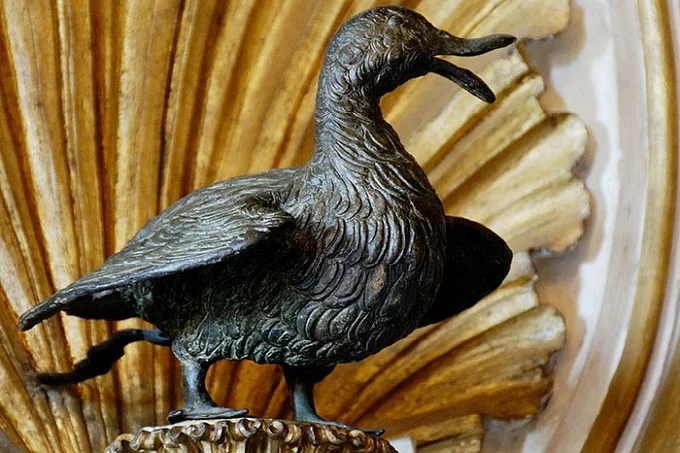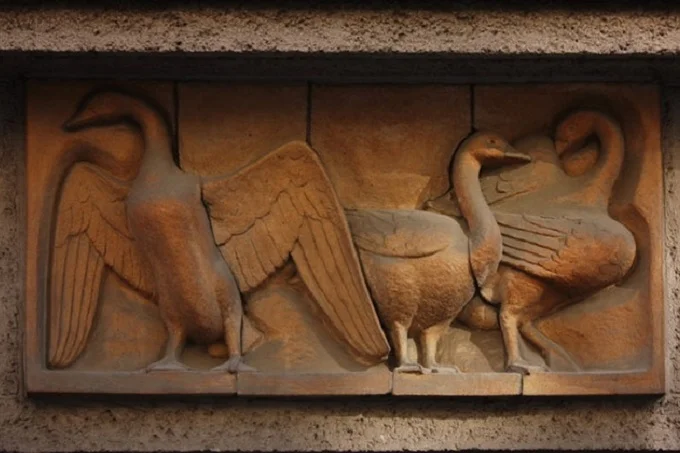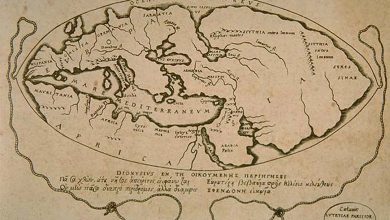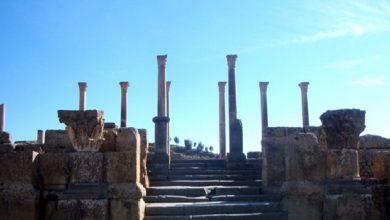Strange quirks of ancient Rome: why Romans punish dogs and worship geese

Ancient Rome is a mighty empire and home to many customs and social norms that are important even today. But even such a great state has its oddities. Geese saved Rome, but dogs get the punishment.
Usually, on one of the warm summer days in August in Rome, a brilliantly decorated stretcher was solemnly brought to the main square. It’s not a wealthy noble lady or a senator inside. An ordinary goose sits importantly on lush purple cushions!
The bird had a special honor – to watch the crucifixion of dogs. What does such an incomprehensible cruel ritual mean and the reasons for its appearance?
The roots of a cruel ritual
This bizarre and rather cruel ritual is called Supplicia Canum (punishment of dogs) in Latin. Every year it was held to commemorate the anniversary of some tragic episode in the history of Ancient Rome.
Around 390 BC, the city was destroyed and plundered by the Gauls. The eerie ritual of atonement should serve as a warning to all canines to stay awake at the service. The geese are given truly royal honors because they warned the soldiers who defended the city and thus saved them from the Gauls.
Ancient conflict
The conflict between the Gauls and the Romans was caused by one rather small, but very annoying incident. It all started with one of the Gallic tribes, the Senones, who moved to Italy. There they wanted to become local mercenaries in the military service.
Fierce warriors very much frightened the inhabitants of one Etruscan city called Clusium (the modern name of Chiusi, located in Tuscany). The townspeople decided to ask Rome to protect them from intruders. The Romans sent ambassadors there to negotiate with the Senones.
During what was supposed to be a diplomatic conversation, a conflict arose. Both sides were military men who were accustomed to solving problems solely with the help of weapons. The skirmish grew into a brutal battle. In the midst of a fight, a Roman soldier killed a Gallic leader. This incident led to the war between the Senones and the Romans.
At first, the Gauls were ready to agree. As a condition for the conclusion of peace, they simply demanded the head of the perpetrator of the murder. Rome did not want to fulfill this condition. The fact is that the culprit belonged to a very powerful family at that time. This was the very important and wealthy Roman family of Fabia. The response to the refusal of Rome was the offensive of the Gauls on its borders. The army was led by the leader of the Senones, Brenn.
The Romans tried to resist the enraged Gauls on the banks of the Allia River but suffered a crushing defeat. The remnants of the Roman army were forced to simply flee from the battlefield. Most of the soldiers took refuge in the city of Veii
Outcome of the historical confrontation
The city authorities decided that there was no point in resisting the invaders. They ordered to carry more assorted food, all valuable property, as well as gold and silver to Capitol Hill. It was then strengthened as much as possible. Meanwhile, the Senones broke the city gates and plundered and ravaged the city for several days, terrifying the local population. The attackers could not take Capitol Hill.

At the same time, the Romans, who had fled to Veii, came to their senses. They regrouped and decided to attack the invaders. The warriors devised an ingenious plan to lift the siege from Capitol Hill. A certain Cominius Pontius was sent there as a messenger. He had to tell the besieged that the rest of the army was just waiting for a convenient opportunity to attack.
Pontius swam across the Tiber River and climbed a cliff, along which it was incredibly difficult to climb. He relayed his message and returned to Veii. The Gaul scouts noticed the trail left by the messenger and decided to enter the fortress in the same way. That same night, they quietly climbed the hill for their final decisive attack.
The sentries and dogs, who were supposed to guard the fortifications, slept serenely. Everything seemed to be predetermined, and victory was almost already in the hands of the enemies. But then the unexpected happened: the invaders stumbled upon completely unexpected guards.
The fact was that there was a temple of the ancient Roman goddess Juno nearby. They kept sacred birds, geese, which were needed for the service. Frightened by the intruders, the birds made a noise. This commotion alerted the Romans, and they brought their ranks to full combat readiness. The Gauls attack was repelled. Since then, the expression “geese saved Rome” has appeared.
Dogs slept and geese saved Rome
After that, the geese proclaimed the heroes of Rome, and the sleeping dogs and guards were executed. Since then, in memory of this historical event, a special atoning ritual, Supplicia Canum, has been instituted. Dogs were sacrificed for neglecting their guard duties in front of the hero-geese who saved Rome. Different sources indicate different days as the date. Basically, this action took place either on July 18 or August 3.




